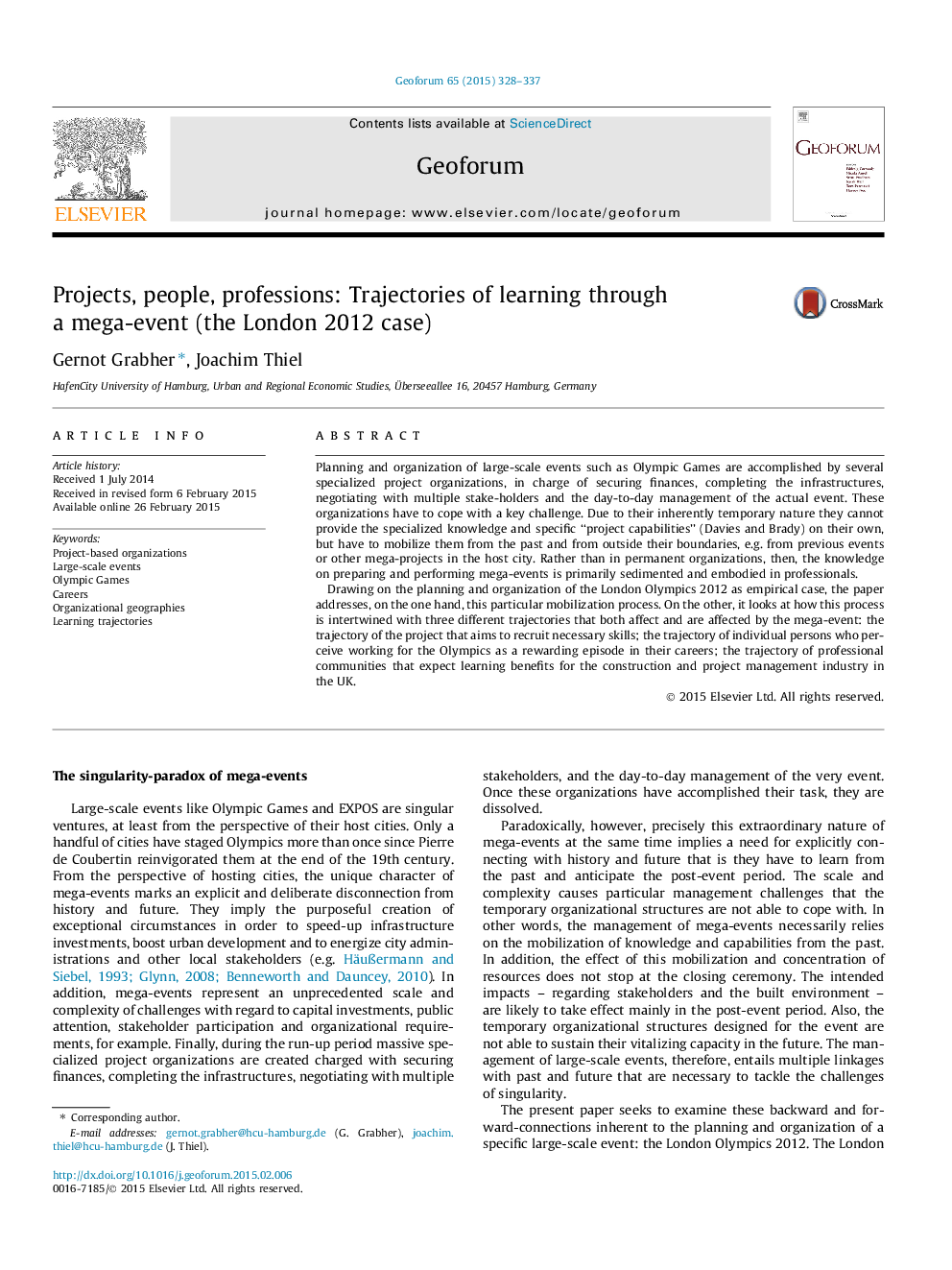| Article ID | Journal | Published Year | Pages | File Type |
|---|---|---|---|---|
| 5073825 | Geoforum | 2015 | 10 Pages |
â¢The hosting of mega-events poses particular challenges of knowledge mobilization.â¢The events therefore imply the channelling of careers through project organizations.â¢At the same time mega-events are critical episodes in professional biographies.â¢London 2012 shows the attempt to weigh knowledge mobilization against cost control.â¢The London Olympics triggered a selective upwards mobility for involved actors.
Planning and organization of large-scale events such as Olympic Games are accomplished by several specialized project organizations, in charge of securing finances, completing the infrastructures, negotiating with multiple stake-holders and the day-to-day management of the actual event. These organizations have to cope with a key challenge. Due to their inherently temporary nature they cannot provide the specialized knowledge and specific “project capabilities” (Davies and Brady) on their own, but have to mobilize them from the past and from outside their boundaries, e.g. from previous events or other mega-projects in the host city. Rather than in permanent organizations, then, the knowledge on preparing and performing mega-events is primarily sedimented and embodied in professionals.Drawing on the planning and organization of the London Olympics 2012 as empirical case, the paper addresses, on the one hand, this particular mobilization process. On the other, it looks at how this process is intertwined with three different trajectories that both affect and are affected by the mega-event: the trajectory of the project that aims to recruit necessary skills; the trajectory of individual persons who perceive working for the Olympics as a rewarding episode in their careers; the trajectory of professional communities that expect learning benefits for the construction and project management industry in the UK.
